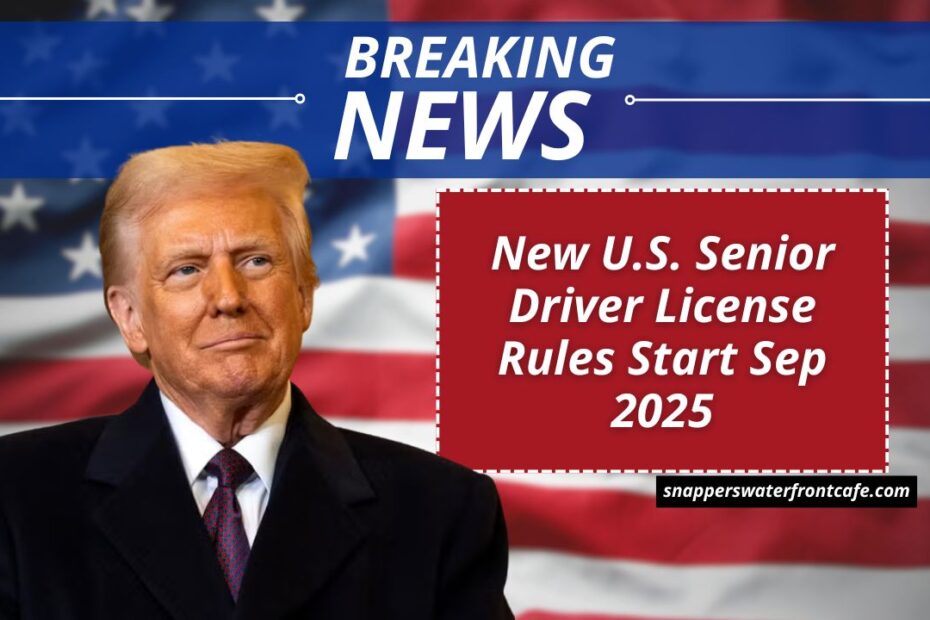Starting September 2025, a new federal framework aims to standardize license renewal rules for senior drivers. Designed to improve road safety, the system introduces age-based testing, renewal intervals, and flexibility across states.
Nearly 48 million Americans aged 65+ hold valid driver’s licenses, and as reflexes and vision may diminish with age, the government is responding with a more nuanced, ability‑based system. The focus is not to restrict driving but to ensure ability and safety.
Age‑Based Renewal & Testing Schedule
This “reverse graduated licensing” system sets baseline standards:
| Age Group | Renewal Interval | Required Assessments |
|---|---|---|
| 70–79 years | Every 5 years | Vision test at each renewal |
| 80–86 years | Every 3 years | Vision + reaction‑time test |
| 87+ years | Every 2 years | Full road test option, plus all prior tests |
This flexible, tiered system respects individual ability rather than imposing strict age thresholds.
State-Level Variations and Fact-Check
While this federal model sets a baseline, the actual implementation varies by state. Some states already have their own rules:
- Illinois is advancing with its own bill: drivers aged 79–86 previously required road tests at renewal—but under new legislation, that is shifting to 87+ only, with vision tests for younger seniors. Family reporting is also being introduced to flag unsafe drivers, aiming to balance fairness and safety.
Despite rumors of a sweeping national mandate requiring vision, cognitive, and road tests for all seniors across the board, fact-checking confirms no such immediate nationwide rule is in effect—state laws currently govern most of these requirements.
Why These Changes Matter
- Safety-first approach: By focusing on ability, not age alone, the law balances mobility with protection.
- Flexibility across states: Federal standards offer consistency, but states can tailor rules to local needs.
- Supports aging independence: Many seniors drive safely into their 80s and 90s; this system allows them to continue under fair, individualized terms.
- Family involvement: In states like Illinois, family members may now report concerns—adding a layer of proactive safety without unfairly targeting age.
The September 2025 driving license changes for seniors introduce a thoughtful, ability-based federal standard—renewal intervals and testing tuned by age group. While these guidelines set a consistent baseline, state-level flexibility remains essential.
Seniors are not being sidelined—they’re being assessed fairly, emphasizing road safety and continued independence. Families and drivers can expect a smoother, safer process as these changes roll out.
FAQs
Are these new driver license rules mandatory across the entire U.S.?
Not immediately. While a federal framework is set for September 2025, implementation varies by state. Each state determines its own renewal and testing protocols
At what age will seniors face more frequent renewal and testing?
Under the proposed federal system:
70–79: renew every 5 years + vision test
80–86: renew every 3 years + reaction-time and vision tests
87+: renew every 2 years, with option for a full road test
Can family members act if they believe a senior’s driving is unsafe?
Yes—in states like Illinois, new laws empower immediate family to report drivers showing medical or cognitive issues, enabling targeted evaluations rather than blanket restrictions.



